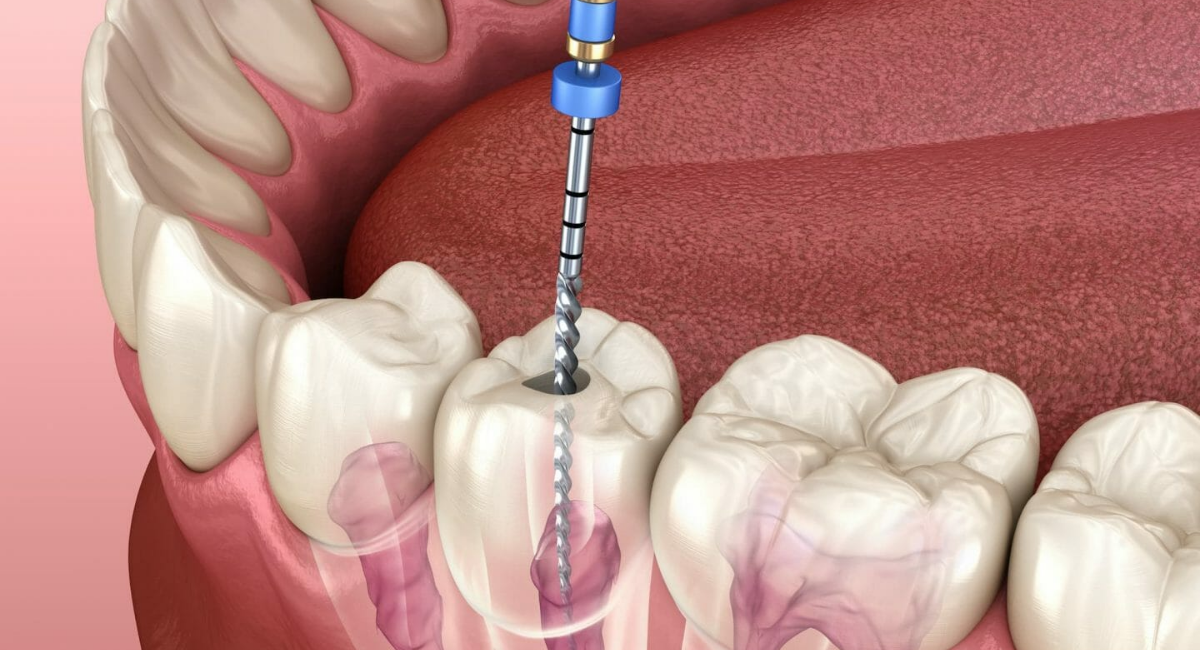Root Canals – The Ultimate Solution to Save Your Tooth from Extraction
When your tooth experiences severe decay or infection, the idea of extraction might seem inevitable. However, root canal treatment offers a powerful alternative, allowing you to save your natural tooth. Preserving your tooth isn’t just about aesthetics; it also maintains oral health, functionality, and comfort. Let’s explore how root canals can effectively save a tooth from extraction.
What Is a Root Canal Treatment?
A root canal is a dental procedure that removes infected or damaged pulp from inside your tooth. The pulp, consisting of nerves and blood vessels, can become inflamed due to decay, cracks, or trauma. Left untreated, this inflammation may lead to pain, swelling, or even abscess formation.
During a root canal procedure:
- The dentist carefully cleans the inside of your tooth, removing infection.
- The space is disinfected and filled with a biocompatible material to restore its strength.
- A crown or filling is placed to protect the tooth and restore functionality.
This process ensures that your tooth remains intact and functional for years to come.
Why Choose a Root Canal to Save Your Tooth?
Opting for a root canal treatment instead of extraction has several advantages:
- Preserves Your Natural Tooth
- Retaining your tooth helps maintain your bite alignment and avoids gaps that can affect neighboring teeth.
- Restores Functionality
- A treated tooth can handle normal chewing and biting forces, ensuring comfort during daily activities.
- Prevents Oral Health Complications
- Extraction may lead to bone loss and shifting of adjacent teeth. A root canal eliminates infection without these risks.
- Cost-Effective in the Long Run
- While initial costs may seem significant, saving a tooth prevents additional treatments like implants or bridges.
- Minimises Pain
- Advanced dental techniques make root canal procedures virtually pain-free, offering relief from infection-related discomfort.
Signs You May Need a Root Canal
Identifying the early signs of infection can make treatment easier and more effective. Consult your dentist if you experience:
- Persistent tooth pain, especially when biting or chewing.
- Sensitivity to hot or cold foods and drinks.
- Swelling or tenderness in the gums near the affected tooth.
- Discolouration or darkening of the tooth.
- A pimple-like bump on the gum, indicating an abscess.
How Does a Root Canal Save Your Tooth from Extraction?
By removing the source of infection or damage, root canals address the root cause of the problem without compromising the tooth’s structure. This allows the tooth to remain anchored in its natural position while restoring its function.
Key factors include:
- Elimination of Pain: The removal of infected pulp resolves the underlying pain and discomfort.
- Structural Integrity: After treatment, the tooth is reinforced with fillings or crowns to ensure durability.
- Prevention of Further Damage: A root canal stops the spread of infection to neighboring teeth and tissues.
The Role of Technology in Modern Root Canals
Modern advancements in dental technology have revolutionised root canal treatments, making them quicker, safer, and more efficient. Techniques like 3D imaging, rotary endodontics, and laser-assisted procedures enhance precision and reduce recovery times.
Patients often find that today’s root canal procedures are no more uncomfortable than getting a routine filling.
Common Myths About Root Canals
There are several misconceptions about root canal treatments. Let’s debunk a few:
- Myth: Root canals are painful.
- Fact: With local anaesthesia and modern techniques, most patients experience minimal discomfort.
- Myth: Extraction is a better solution.
- Fact: Saving a natural tooth is always preferable when possible, as it preserves oral health and appearance.
- Myth: Root canals are not long-lasting.
- Fact: A well-performed root canal, coupled with proper care, can last a lifetime.
Aftercare for Root Canal Treatment
Proper aftercare is crucial for the success of your root canal treatment. Follow these tips to ensure long-term health:
- Maintain excellent oral hygiene by brushing and flossing daily.
- Avoid chewing hard foods with the treated tooth until the crown is placed.
- Visit your dentist regularly for check-ups and cleanings.
- Wear a night guard if you grind your teeth to protect restorations.
Why Consulting a Dentist Matters?
Choosing the right dental professional ensures that your treatment is handled with expertise and care. We use advanced diagnostic tools and techniques to provide personalised care that meets your needs.If you are in need of a root canal or have questions about saving your tooth from extraction, contact your local trusted dentist today.



